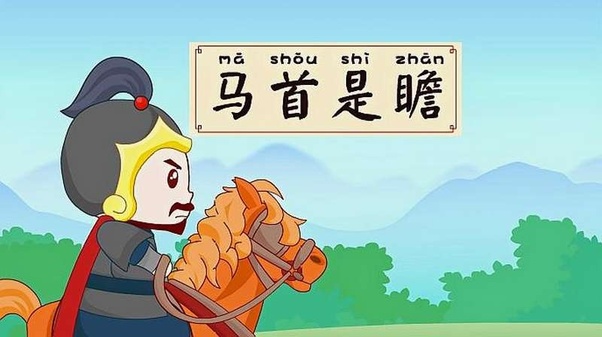Well, it depends on how you see this topic. I mean, the sentence structure of the Chinese language is usually SVO, which is subject–verb–object, or 主谓宾 in Chinese. And the word order in spoken Chinese also follows this. Of course, there are Chinese phrases and Chinese sentences whose positions of verbs and objects are reversed.
Here is an example. 马首是瞻, which literally means taking the head of a general’s horse as the guide, usually metaphorically refers to a situation in which people follow the lead of somebody or an organization and take that lead as the only guide. As you see in 马首是瞻, 马首, which means the head of a horse, is Object, or 宾语 in Chinese. And 瞻, which could mean look up, is used here as Verb, or 谓语 in Chinese. And 马首 is put before 瞻.
Actually, this kind of reversing the position of verbs and nouns is more often seen in Classical Chinese. As a matter of fact, this phrase 马首是瞻 is taken from a quote in Zuo Tradition, or 左传 in Chinese. The original excerpt is 荀偃令曰:”鸡鸣而驾, 塞井夷灶, 唯余马首是瞻.”
And this could be translated as Xun Yan, a general in Jin State, or 晋国 in Chinese, ordered his soldiers, “when the roosters crow, yoke your chariots, fill in the wells, and level the stoves. Look only to follow where my horse’s head is pointing.”
Here is picture showing this phrase and portraying a general riding on his horse.
